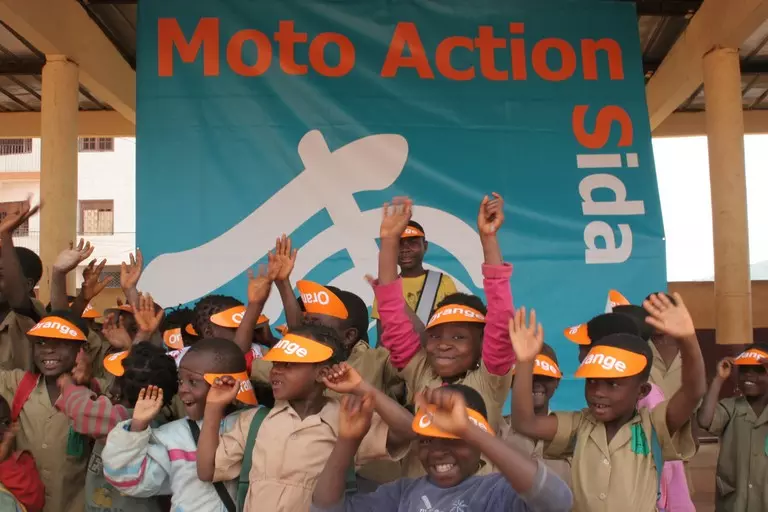
Social and Employment
Place
Yaoundé, Cameroon
Sponsor
Patrick Barbier
Grant(s)
€10,000 to the Selection Committee at 2010/03/30
Project leader
"The advantage of this project is that it offers a single place for resources, documentation and training for associative organizations and health structures. It will also help the marginalized and isolated populations benefit from proximity prevention. It will help support the network of local villagers by offering them a visible space on which they can rely."
Patrick Barbier
Since 2006, the nonprofit Moto Action has been conducting campaigns for the prevention and early detection of contagious and sexually transmissible diseases (including HIV) in Cameroon, based on a novel approach: its teams of advisers and psychosocial educators, doctors, nurses and even engaged artists, sally forth to meet the marginalized and vulnerable populations, travelling the roads of the country on their motorcycles. They work alongside the local associations and health structures, and have thereby progressively built up a wide-ranging network in the area of healthcare and prevention.
While this very mobile organization has demonstrated its importance, it lacks a place to gather all the available information, where the various associations could drop in for information and training.
4 full-time and 7 part-time jobs
Moto Action therefore decided to open a resource and documentation centre called CRD MAS in Yaoundé, the capital of Cameroon. The Veolia Foundation is financing part of the arrangements required to run this new facility, which performs many functions. It will enable all the players of the country to get information and training in the latest forms of prevention concerning sexually transmissible diseases, to optimize their operations among the vulnerable population (women, orphans, young people, prison inmates, etc.). As a meeting place, it will host debates between professionals, and will also help implement targeted actions, conducted in teams, particularly in hygiene and sex education. The installation of this structure, which will fit in durably in the health landscape of Yaoundé, will also help create four permanent jobs (a manager, a documentalist and two caretakers), four part-time attendants for full-time organizational service, and another three part-time jobs (a waitress, a supervisor and a driver - deliveryman).

